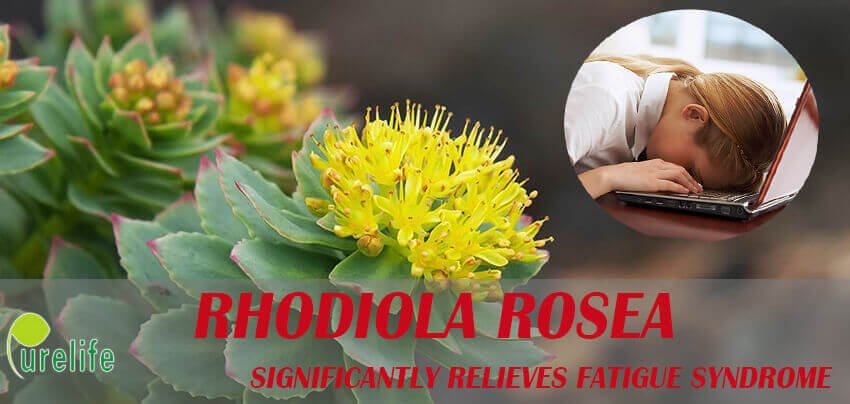Rhodiola Rosea significantly relieves fatigue syndrome
Rhodiola Rosea is an herb that grows in the cold, mountainous regions of Europe and Asia. It is an herb in the rhodiola genus and has traditionally been used as an adaptogen and anti-fatigue agent. Rhodiola can be especially effective at reducing the fatigue generated by prolonged, low intensity physical exercise as well as improving cognitive function and endurance of people suffering from fatigue. And new clinical trial shown that Rhodiola Rosea significantly relieves fatigue syndrome

What is fatigue syndrome
It is chronic fatigue syndrome. Some people also call it myalgic encephalomyelitis(ME) or chronic fatigue immune dysfunction syndrome(CFIDS). This concept was first officially named by the National Centers for Disease Control in the US in 1987. In fact, fatigue syndrome is more of a subjective state, with no clear definition and no established diagnostic criteria.
A world health organization global survey shows that only 5 % of the world’s people are truly healthy, and 20 % of people suffer from diseases, while 75 % are in a sub-healthy state. These sub-healthy people are likely to be people with fatigue syndrome.
There are many symptoms of fatigue syndrome, usually manifested as depression and a decline in physical performance satisfaction due to long-term stress. It may also include fatigue, inattention or reduced sexual function. Severe fatigue syndrome may cause depression, anxiety, or other chronic diseases. Adaptive herbs have long been used to relieve stress, stabilize mood and improve physical fitness. Rhodiola Rosea is a well-known adaptative herb that has traditionally been used to relieve related symptoms caused by fatigue and stress.
Clinical trials have also shown that Rhodiola Rosea has a significant effect in stabilizing the mood of patients with moderate depression, improving the physical and mental performance of high-pressure people, and reducing mental fatigue. Austrian researchers once again evaluated the physiological effects of Rhodiola Rosea in an exploratory clinical trial.
In this non-blind, non-controlled trial, the researchers recruited 118 patients from the Vienna Medical Center in Austria. Before the trial, these patients needed to fill out questionnaires that related to emotional and physical fatigue symptoms. Only those who met the pre-defined criteria were eligible to participate in the study.
The researchers used 10 questionnaires to assess the subject’s physical condition, including the Maslach Fatigue Scale (MBI), Exhaustion Screening Tables I and II, Perceptual Stress Questionnaire (PSQ), and Numerical Simulation Scale (NAS) of Stress Symptoms.
All participants received 12 weeks of Rhodiola Rosea supplements twice a day at 200 mg each time. The results of the study showed that during the 12 weeks, most of the subjects had improved physical performance, especially during the first week. The researchers indicated that all seven subjective stress symptoms improved significantly, most notably , fatigue, inattention, and physical fatigue symptoms, as well as perceived stress(PSQ) and lack of happiness, stress, and fatigue.
The researchers concluded that Rhodiola Rosea has good improvement in the subjects ‘subjective feelings, as well as physical, cognitive, and emotional complaints about their careers, individuals, families, and friends. Rhodiola Rosea significantly relieves fatigue syndrome. Also, there are few adverse events, and the incidence rate per observation day is only 0.015. In general, this exploratory experiment provides preliminary data that demonstrate Rhodiola Rosea has a significant effect in improving mood and physical failure, and it has potential for clinical application as well.


